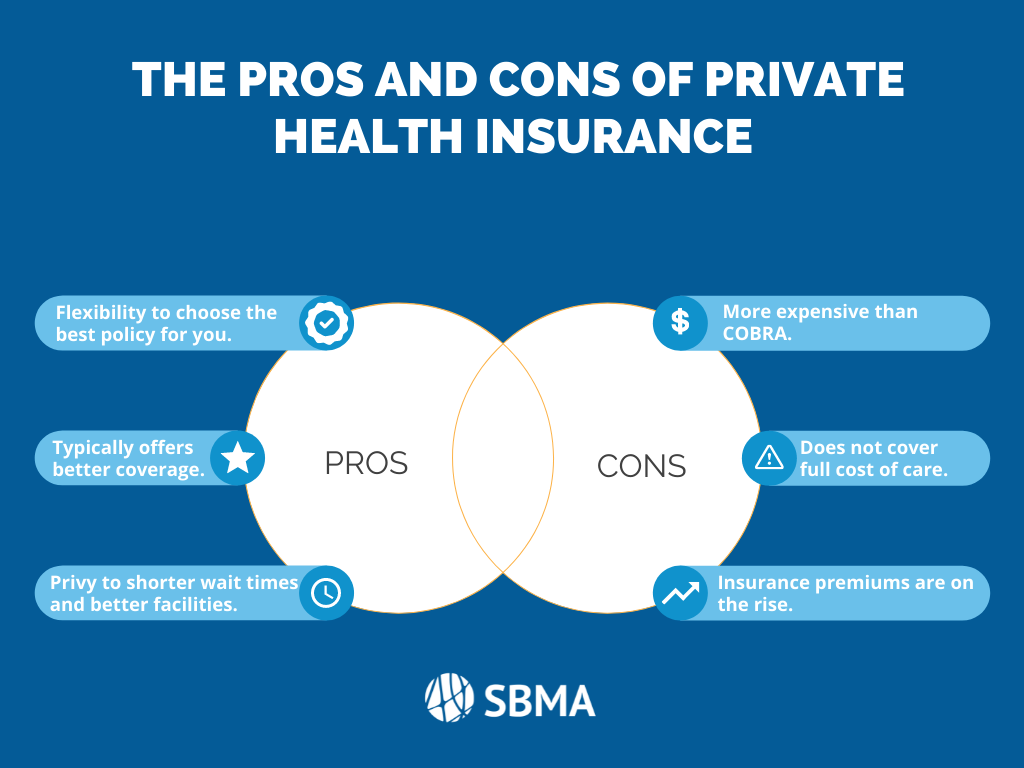Getting The Medicare Advantage Agent To Work
Table of ContentsThe Basic Principles Of Medicare Advantage Agent Unknown Facts About Medicare Advantage AgentSome Known Details About Medicare Advantage Agent 10 Easy Facts About Medicare Advantage Agent ShownSome Known Details About Medicare Advantage Agent Medicare Advantage Agent for BeginnersThe 2-Minute Rule for Medicare Advantage Agent

Major illnesses can cost lot of times that. Healthcare insurance coverage aids you get the treatment you require and safeguards you and your family monetarily if you get ill or injured. You can get it with: Your job or your partner's task, if the employer offers it. You need to satisfy qualification demands for government healthcare programs. To find out more regarding government programs, check out Benefits.gov. Discover more: Medical insurance: 5 points you might not know View: Are you instantly requiring health and wellness insurance coverage? You can include your family members to a work health insurance. If you purchase from an insurer or the industry, you can acquire
a strategy that additionally covers your family. They do not have to live at home, be enlisted in college, or be declared as a reliant on your tax return. You can keep wedded children on your strategy, yet you can't include their partners or youngsters to it. If you have reliant grandchildren, you can keep them on your strategy up until they turn 25. You can get at other times only if you shed your insurance coverage or have a life change. Life changes include points like obtaining married or
divorced, having a child, or embracing a kid. You can enroll in a work health and wellness plan when you're first hired or have a major life change. They can not deny you coverage or cost you more due to a preexisting condition or special needs. The expense relies on your conditions. You'll need to pay costs and component of the cost of your treatment. A costs is a month-to-month charge you pay to have insurance coverage. To determine your premium, insurer will certainly think about: Your age. Whether you smoke or use tobacco. Whether the coverage is for one person or a family members. They may rule out your gender or health variables, including your clinical history or whether you have a special needs. Premiums for private plans are locked in for one year. Fees normally go up when the strategy is renewed to reflect your age and higher health treatment prices. All health insurance need you to.
pay some of the cost of your healthcare. This is called cost-sharing. Along with costs, you normally have to satisfy a deductible and pay copayments and coinsurance. A is the quantity you have to pay before your strategy will certainly pay. If your deductible is$ 1,000, your strategy will not pay anything until you've paid $1,000 on your own.
You'll additionally have a copayment if you most likely to the emergency clinic or see a specialist. The amounts differ by strategy. is an amount you spend for a covered service after you have actually met your deductible. It's usually a percentage of the expense of the service. Your health and wellness plan might pay 80 % of the price of a surgical procedure or health center remain.
The portion you pay in coinsurance differs by plan. You typically don't need to pay coinsurance in an HMO. Federal law establishes limits on the amount you pay of pocket in a strategy year. Some plans have reduced out-of-pocket restrictions. After you reach the limitation, you don't have to pay copayments or coinsurance for the remainder of the plan year.
The Definitive Guide for Medicare Advantage Agent
The four types are: HMO strategies. Unique service provider (EPO) plans. Preferred copyright (PPO) strategies. Point-of-service strategies. All 4 kinds are managed care strategies. This means they agreement with physicians and other wellness treatment providers to treat their participants at affordable prices. These service providers make up a strategy's network. Handled care strategies limit your option of doctors or urge you to make use of physicians in their networks.
The plans vary in the level to which you can utilize physicians outside the network and whether you should have a medical professional to manage your treatment. You need to make use of service providers in the HMO's network. If you don't, you might need to pay the complete cost of your treatment on your own. There are exceptions for emergencies and if you need care that isn't offered in the network. Medicare Advantage Agent.
You'll also have a copayment if you go to the emergency clinic or see an expert. The quantities differ by plan. is a quantity you spend for a protected service after you've met your insurance deductible. It's normally a portion you can look here of the price of the solution. For instance, your health strategy could pay 80 % of the expense of a surgery or healthcare facility keep.
All about Medicare Advantage Agent
The percentage you pay in coinsurance differs by strategy. You typically don't need to pay coinsurance in an HMO. Federal legislation sets limits on the quantity you pay out her explanation of pocket in a strategy year. Some strategies have lower out-of-pocket restrictions. After you get to the limit, you do not have to pay copayments or coinsurance for the rest of the strategy year.
A plan year is the 12-month period from the date your coverage started. If your protection started on September 1, your strategy year lasts up until August 31. Find out more: Just how to save money at the medical professionalTreatment alternatives and costs There are four kinds of major medical health insurance plan in Texas.
The 4 types are: HMO plans. Unique copyright (EPO) plans. Preferred service provider (PPO) strategies. Point-of-service strategies. All 4 kinds are managed care strategies. This indicates they agreement with doctors and other health care companies to treat their members at reduced prices. These suppliers make up a strategy's network. Managed treatment strategies restrict your option of physicians or encourage you to make use of physicians in their networks.
The plans differ in the extent to which you can use medical professionals outside the network and whether you need to have a medical professional to supervise your treatment. If you do not, you may have to pay the complete price of your treatment yourself.
Facts About Medicare Advantage Agent Uncovered
You'll additionally have a copayment if you go to the emergency clinic or see an expert. The amounts differ by plan. is an amount you pay for a protected solution after you have actually met your deductible. It's normally a percentage of the expense of the service. Your wellness plan may pay 80 % of the cost of a surgery or healthcare facility remain.

The percent you pay in coinsurance differs by strategy. Federal law sets limitations on the amount you pay out of pocket in a plan year - Medicare Advantage Agent.
A plan year is the 12-month period from the date your coverage started. If your protection started on September 1, your strategy year lasts until August 31. Find out more: Exactly how to save cash at the physician Care options and costs There are four sorts of major clinical health insurance plan in Texas.
Exclusive supplier (EPO) strategies. All 4 types are taken care of care strategies. Taken care of care strategies index limit your selection of physicians or encourage you to make use of physicians in their networks.
The 9-Minute Rule for Medicare Advantage Agent
The plans vary in the extent to which you can utilize medical professionals outside the network and whether you must have a medical professional to oversee your care. You need to make use of providers in the HMO's network. If you don't, you may need to pay the complete price of your treatment yourself. There are exceptions for emergency situations and if you need care that isn't available in the network.
You'll also have a copayment if you go to the emergency room or see a specialist. The amounts vary by strategy. is a quantity you spend for a protected solution after you've satisfied your deductible. It's generally a portion of the cost of the service. Your health plan might pay 80 % of the cost of a surgery or hospital keep.
The percent you pay in coinsurance differs by plan. You usually do not need to pay coinsurance in an HMO. Federal legislation sets restrictions on the quantity you pay out of pocket in a strategy year. Some strategies have lower out-of-pocket restrictions. After you reach the restriction, you don't have to pay copayments or coinsurance for the remainder of the plan year.
A strategy year is the 12-month period from the day your protection started. For circumstances, if your protection started on September 1, your plan year lasts until August 31. Discover more: Just how to save money at the doctor Treatment choices and prices There are four types of major medical health insurance plan in Texas.
Top Guidelines Of Medicare Advantage Agent
The four types are: HMO plans. Special service provider (EPO) plans. Preferred supplier (PPO) strategies. Point-of-service plans. All four types are taken care of care plans. This indicates they contract with medical professionals and various other wellness treatment service providers to treat their participants at affordable rates. These companies compose a strategy's network. Taken care of care plans restrict your option of medical professionals or urge you to utilize doctors in their networks.
The strategies differ in the degree to which you can make use of doctors outside the network and whether you need to have a doctor to manage your treatment. You have to utilize companies in the HMO's network. If you don't, you might need to pay the full price of your care on your own. There are exemptions for emergencies and if you require treatment that isn't readily available in the network.